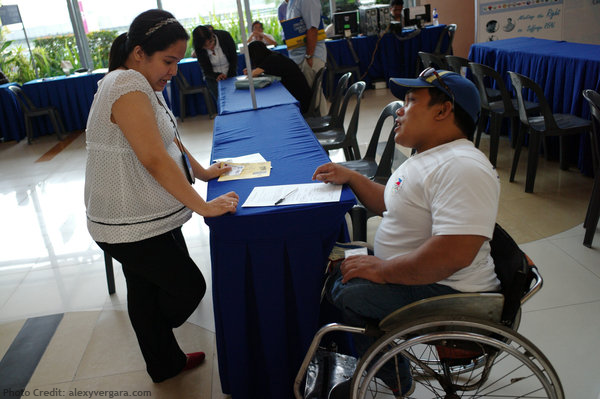SBN-2713: Magna Carta for Persons with Disabilities
Filipino Persons with Disabilities (PWDs) have been actively participating in shaping our history and contributing to the advancement of good governance.
We go back to as early as the 1896 Spanish Revolution era, where Apolinario Mabini, a sublime paralytic, wrote subversive manifestos against Spain and became the brains of the revolution1 . Moreover, he eventually drafted the framework of the revolutionary government in 1899.
In recent history, Art Borjal, who moved with leg braces and crutches, was a popular columnist and worked for the rights of the PWDs in the early 1990s2 , while polio-survivor Grace Padaca, a former Isabela governor and Ramon Magsaysay awardee, is a staunch advocate of governance and election reforms todal.
Furthermore, the National Federation of Cooperatives of Persons with Disability (NFCPWD) has worked with the Department of Education (DepEd) in producing public school chairs4. The organization has generated P80 million in the past twelve years for workers and staff with disabilities.
Still, our country’s challenge is to be truly inclusive to serve the needs of the marginalized, particularly the PWD sector. PWDs have found it difficult to gain employment and earn income for themselves and for their families. Families with PWDs have also had to worry about their daily expenses for medicine and rehabilitation.
Hence, the PWDs Tax Exemption Act of 2015 seeks to give reprieve to the plight of our PWDs and their families and be able to support them in their daily challenges.
This measure proposes for families with PWD dependents to have a yearly uniform P25,OOO tax exemption, in addition to the regular personal deductions, in order to augment their expenses – wheelchairs, hearing aids, nurses and caregivers, and learning disability tutors, among others. In addition, the act seeks to exempt PWDs from value add taxes (VAT).
Such accommodation for our PWD sector is part of our larger reform efforts in pushing for a society that is inclusive for the poor and most vulnerable sectors. It is one of our courses in our journey towards achieving a fully-abled nation.
In view of the foregoing, the approval of this bill is earnestly south.
![]() DOWNLOAD SBN 2713
DOWNLOAD SBN 2713

Recent Comments